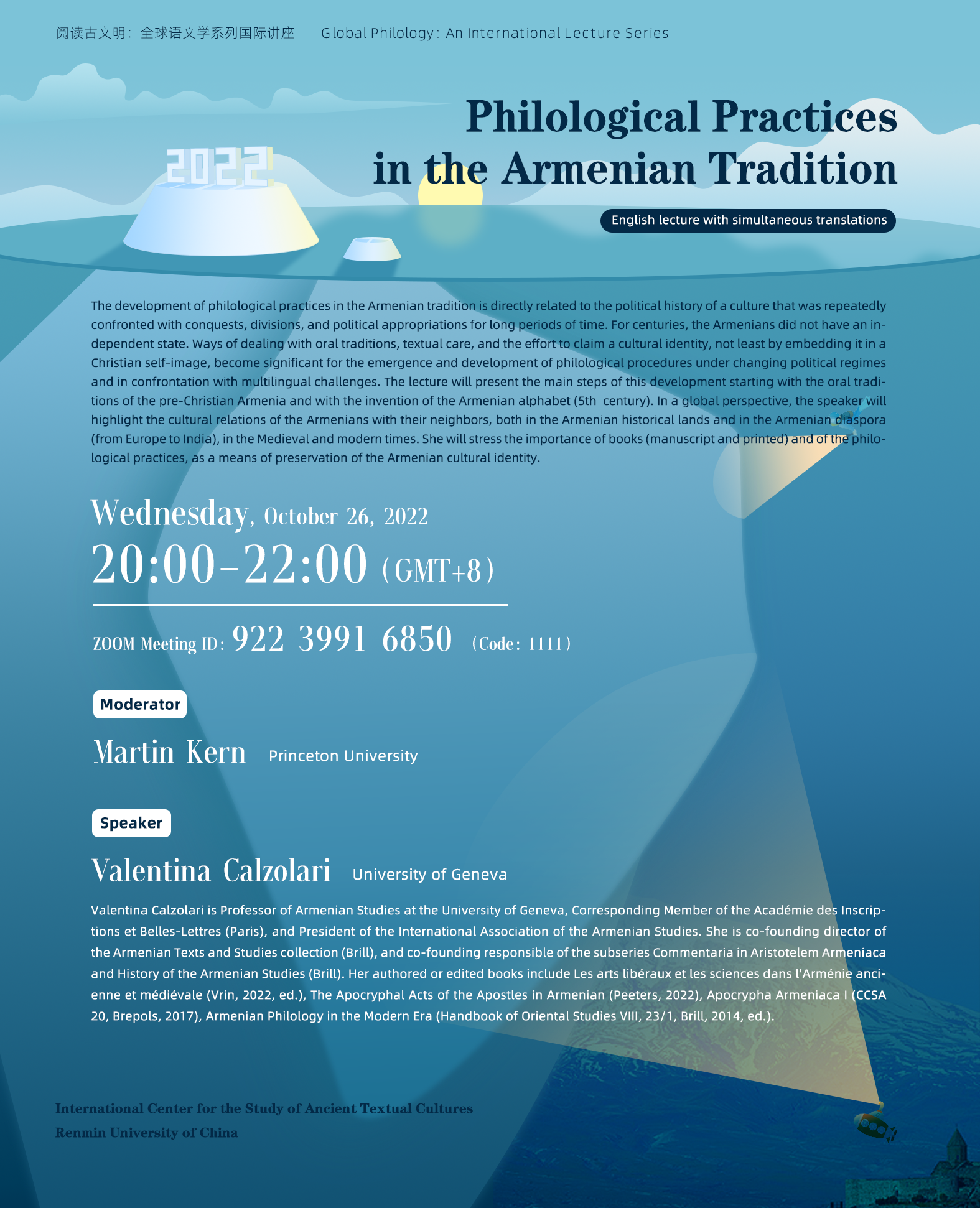[Upcoming]Philological Practices in the Armenian Tradition
发布时间:2022-10-26Global Philology:An International Lecture Series
Philological Practices in the Armenian Tradition

Title: Philological Practices in the Armenian Tradition
Speaker: Valentina Calzolari, University of Geneva
Moderator: Martin Kern, Princeton University
Time: 20:00-22:00 (GMT+8), October 26, 2022.
Zoom Meeting ID: 922 3991 6850 (Code: 1111)
Zoom Link:
https://zoom.us/j/92239916850?pwd=MnhBaGxZY1ZpQ3BGMWovRHR1U0h2QT09
About the Speaker:
Valentina Calzolari is Professor of Armenian Studies at the University of Geneva, Corresponding Member of the Académie des Inscriptions et Belles-Lettres (Paris), and President of the International Association of the Armenian Studies. She is co-founding director of the Armenian Texts and Studies collection (Brill), and co-founding responsible of the subseries Commentaria in Aristotelem Armeniaca and History of the Armenian Studies (Brill). Her authored or edited books include Les arts libéraux et les sciences dans l'Arménie ancienne et médiévale (Vrin, 2022, ed.), The Apocryphal Acts of the Apostles in Armenian (Peeters, 2022), Apocrypha Armeniaca I (CCSA 20, Brepols, 2017), Armenian Philology in the Modern Era (Handbook of Oriental Studies VIII, 23/1, Brill, 2014, ed.).
Lecture Introduction:
The development of philological practices in the Armenian tradition is directly related to the political history of a culture that was repeatedly confronted with conquests, divisions, and political appropriations for long periods of time. For centuries, the Armenians did not have an independent state. Ways of dealing with oral traditions, textual care, and the effort to claim a cultural identity, not least by embedding it in a Christian self-image, become significant for the emergence and development of philological procedures under changing political regimes and in confrontation with multilingual challenges. The lecture will present the main steps of this development starting with the oral traditions of the pre-Christian Armenia and with the invention of the Armenian alphabet (5th century). In a global perspective, the speaker will highlight the cultural relations of the Armenians with their neighbors, both in the Armenian historical lands and in the Armenian diaspora (from Europe to India), in the Medieval and modern times. She will stress the importance of books (manuscript and printed) and of the philological practices, as a means of preservation of the Armenian cultural identity.